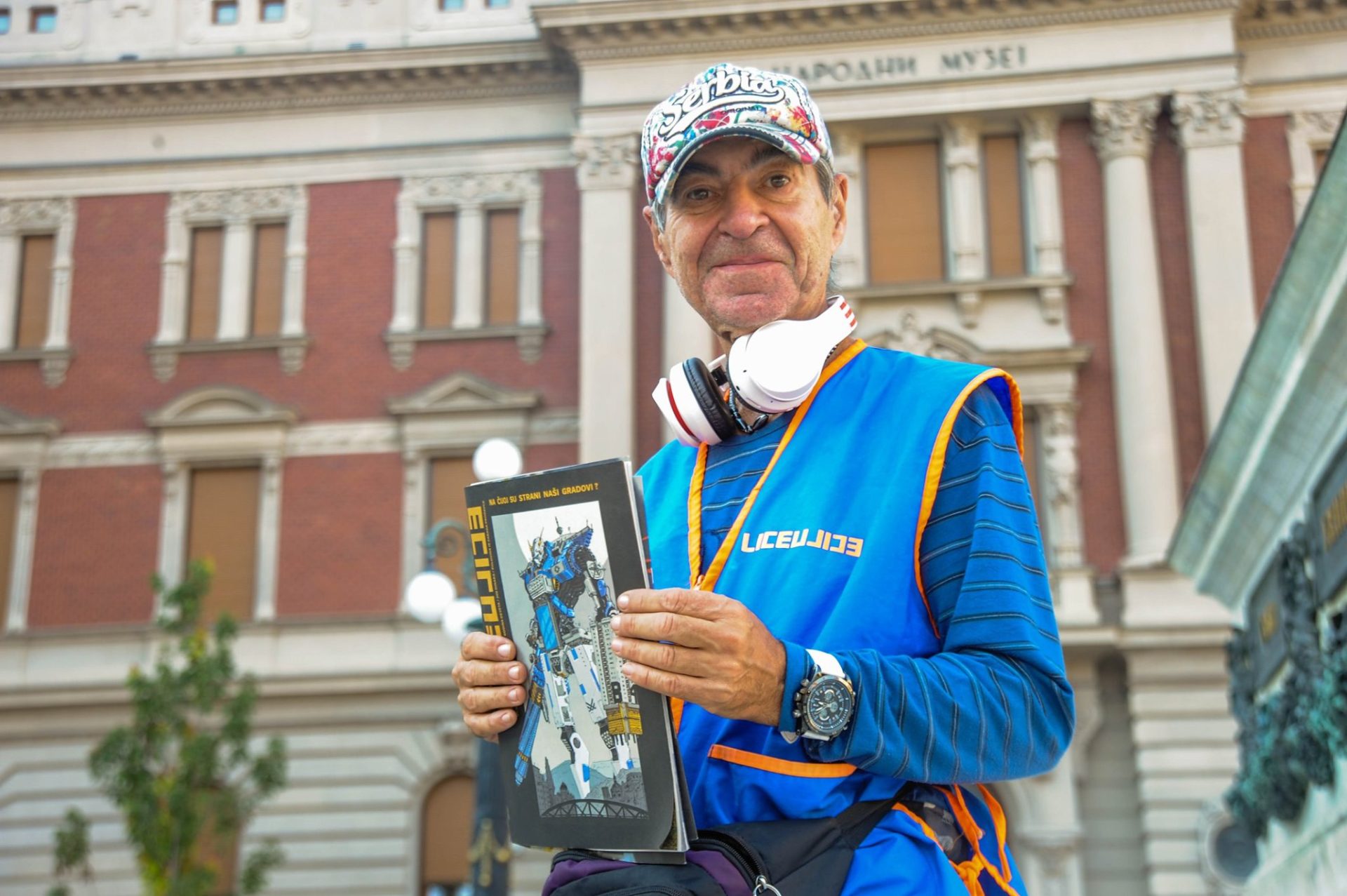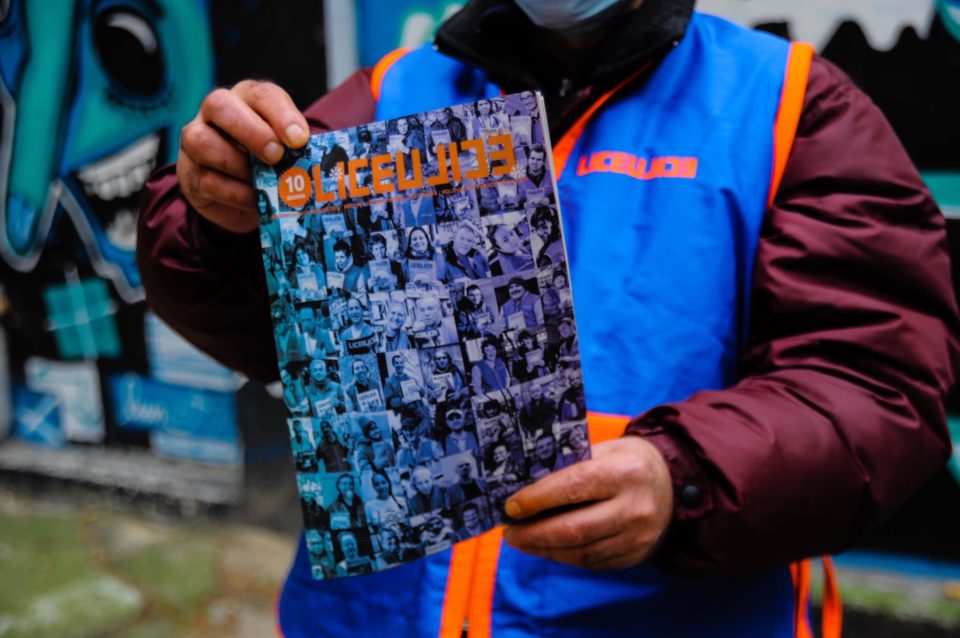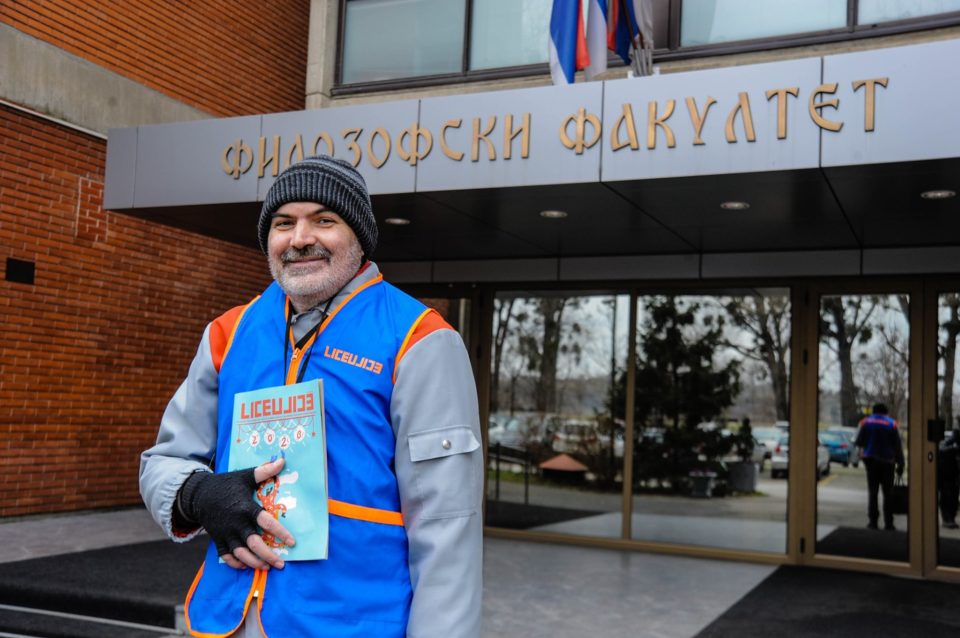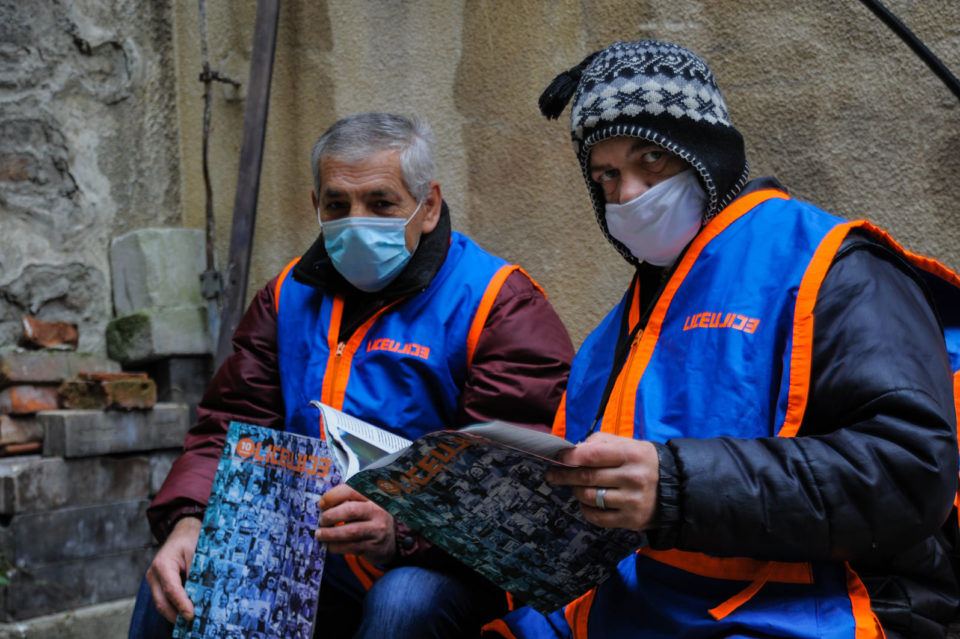
Eleven years ago, a group of people in Belgrade learned about the concept of a street newspaper. Seeing how much the sale of these newspapers helps socially and economically disadvantaged people, especially the homeless, they decided to launch a project in their own city.
The International Network of Street Papers helped the group acquire new knowledge and skills and linked them to similar initiatives in Europe. More research was then done on the development of the media and distribution network concept. They started as an informal coalition of civil society organizations and individuals and, in July 2010, founded a non-profit organization called Liceulice (The Face of the Street), headed by Milosav Marinović. From the beginning, the organization has been committed to supporting marginalized groups and the aim has always been clear – to improve the social and economic position of the most vulnerable people in society.
“The very idea behind street newspapers is not new. There are currently about 125 street newspapers in 35 countries in the world. We have made a step or two further than most others with the editorial concept and quality of the magazine itself. Many street newspapers in the world are at the level of fanzines. We wanted something bigger from the very beginning. When I presented the concept to some professionals ten years ago, many of them did not believe that such a thing was possible. We wanted to write interestingly about ‘boring topics’, to be serious but accessible, to write about problems without looking for culprits but possible solutions,” explains Milosav.
In addition to the quality of the written content, Liceulice is also dedicated to high-quality visual presentation. They have worked for years to establish and enhance a network of designers, illustrators and artists, principally through competitions and open calls that invited them to think about socially responsible topics.

“While in the initial phase, we published irregularly and a much lower number of copies, Liceulice has been published ten times a year for several years, and we recently published the 70th issue. Currently, more than 180 sellers are active in Belgrade, Kikinda, and Novi Sad. For all those who want to read Liceulice and are not able to meet our sellers, there is the possibility of subscribing to either the paper or digital version. Liceulice is read today in Australia, Norway, the Emirates, and many other countries,” Milosav tells us.
The Liceulice team decided to dedicate a substantial amount of magazine space to socially sensitive content, focusing on fact-based stories that offered different perspectives and opened up dialogue with the reader, all discussed and presented in an accessible way. Subject matters of public interest such as ecology, the fight against discrimination, and the improvement of public space receive particular attention. As well as this, every issue contains the sellers’ stories, from their own personal perspective and, occasionally, the literary or artistic contributions of their readers.
“We are happy that Liceulice has become a respected member of the International Network of Street Papers, which has nominated us for the best texts, cover and design eight times so far, and awarded us the prize for the best cover. That particular cover was designed by our associate Sanja Stojkov in 2017, for an issue dedicated to the fight for women’s rights. Three years ago, we received the medal for Feminist Alliance in Media from the BEFEM festival,” says the editor.

However, the most important element of Liceulice is the sellers themselves. The magazine’s street sales network consists of members of various marginal and hard-to-employ groups, such as the homeless, people with disabilities, users of psychiatric services, Roma, and the elderly. Liceulice hires people facing poverty and social exclusion, offering them a chance to work, earn and gain knowledge, skills, and motivation. Half of the earnings from each copy sold are paid to the seller.
“By applying the ‘hand up, not a handout’ approach, we are working on building up the capability of our sellers towards gaining their independence, return to regular social life, and inclusion in the labor market,” says Milosav.
In addition to the earnings, communication with buyers and passers-by is very important to sellers. The uniqueness of street newspapers lies precisely in the fact that they build connections between sellers and readers because sales are done face-to-face. This interaction helps build bridges between those on the margins and the general public. It also helps everyone understand the key issues of social exclusion and see that we are all the same, we just have not had the same chances in life.
“Over the past ten years, we have been able to do so much to help our sellers. We regularly produce specially designed collections of Liceulice t-shirts. We have also launched the Vreva street festival of activism, the My Homeless Neighbor online initiative to help the homeless, and the For Good Reasons platform for the promotion of socially-engaged design,” explains Milosav.

To help its associates, Liceulice provides the sellers in Belgrade with support from their in-house professional team; Novi Sad sellers are taken care of by partners from the Patrija association; and the sellers in Kikinda are supported by the local center for the provision of social protection services. This support refers to general consultation, helping with individual financial planning, assisting with sales plans, and sometimes solving acute problems. In addition, vendors who need it are included in psycho-social empowerment groups.
“During the pandemic, sellers’ support was somewhat different than in regular circumstances. Our team was in regular telephone contact with all vendors, who found this loss of routine extremely difficult, and, during the same period, we distributed aid packages to them several times. We also helped some sellers by obtaining special permits for them to go out during curfew, helping them to find accommodation, or in other ways,” Milosav tells us.
With the help of the money they earn and the support provided, many Liceulice magazine sellers have managed to finally find adequate accommodation, often overcome alcoholism or drug addiction, and, most importantly, gain their independence. Their touching and inspiring stories can be found at: https://liceulice.org/






